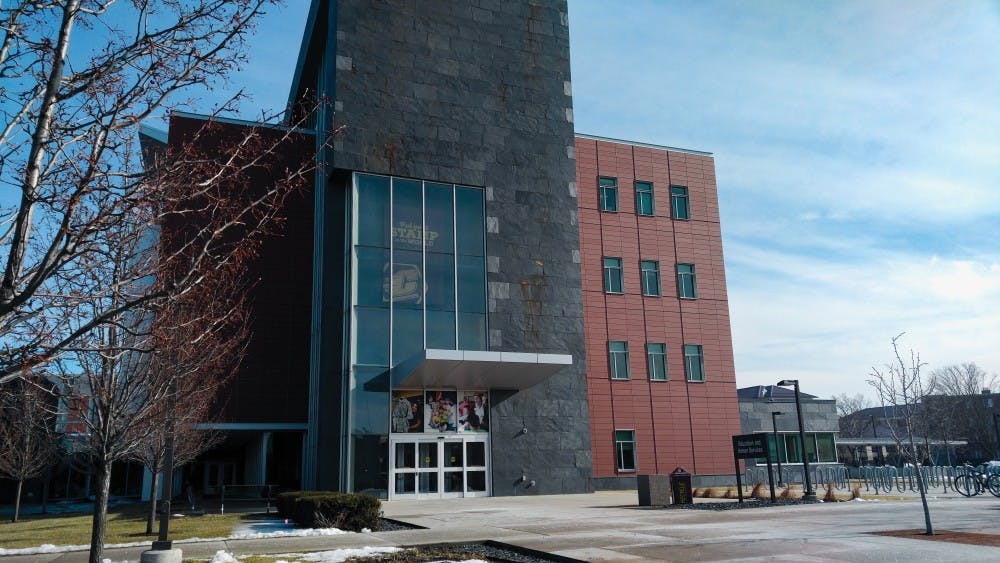Student teachers to fulfill program requirements from home
Steven Keene spent his spring break traveling down to Florida, only to be sent back soon after his arrival.
He wasn't going to party on the beach like some college students show in national media. Keene was moving to Immokalee, a small agricultural town in southwest Florida, to begin student-teaching at Collier County Public Schools.
Immokalee has a large immigrant population from Mexico, Haiti and Central America. This alternative student teaching program is implemented every spring to give student teachers a chance to gain clinical experience in another state.
Keene was supposed to be teaching middle school students from primarily low-income families.
After a two-day drive with six other student teachers, Keene was greeted by the school district administration on March 5. He was even given a riverboat tour of wetlands in Immokalee. Keene was to begin his new position the following Monday.
Keene followed new stories about how the coronavirus was affecting Michigan. He said CMU kept in close contact with the group about plans for their semester.
“(That weekend) was very eerie. We were out enjoying our night and then got a notification on our phones about how Michigan closed all of its schools for three weeks,” Keene said. “That is a very vivid memory. It was one of the first times we thought, ‘Oh no, we may have to come home.’”
As the coronavirus continues to affect the state of Michigan, Gov. Gretchen Whitmer has decided to close all K-12 schools for the remainder of the school year. This closure has created displacement for many people, including student teachers.
For CMU, this change has impacted many student teaching candidates as they now have to move from the classroom and adapt to these changes. The requirements for student teaching are not necessarily changing, but candidates are now being given more leniency.
“We are very fortunate that the Michigan Department of Education has been working really well with their higher education partners to provide us flexibility with working with our candidates,” Director of Clinical Experiences Jillian Davidson said. “No requirements have been waived, but they are giving institutions of higher education flexibility so that we can be creative in allowing our candidates to continue to grow professionally and meet the requirements that they need to graduate.”
Candidates are still required to complete a certain number of weeks, attend professional development sessions and continue to try to contribute to students’ learning.
“All of our candidates in student teaching specifically are continuing to contribute to the educational community from their homes,” Davidson said. “They’re doing whatever they can do to help families across the state who are now trying to educate their children from home.”
What a candidate does to contribute educationally is dependent on their school district. For some districts, computer and internet access may be limited.
This is especially true in Wayne senior Amy Hoch’s case.
Hoch had just finished fulfilling her requirements as a special education student teacher in the Metro-Detroit area before Michigan schools began to close indefinitely.
“My students need a lot of reinforcement and redirection to keep them on task," Hoch said. "Many of them have working parents, or parents that do not feel comfortable helping them with homework for a multitude of reasons. Some don’t have reliable internet access at home, let alone a computer to use to get work done.”
Hale senior Kaylee Bernard spent her semester with Mount Pleasant Public Schools teaching band to grades six through 12.
For Bernard, providing educational components online has been difficult for Mount Pleasant Public Schools. However, she does what she can by posting on the band’s social media page. She shares content such as YouTube videos, music theory and practice tips for students.
“This (experience) has really made me reconsider how online resources can be helpful for students and families, and how I can contribute to that,” Bernard said. “It has definitely made me be a lot more active online and…(has) helped me expand my knowledge of resources.”
These differences force candidates to approach their districts differently. With the educational contributions given, candidates log what they have accomplished weekly.
Bay City senior Holly English was in week 10 of 12 of a student teaching program in her hometown. She said the weekly journal entries will look different for every candidate.
“Some of my colleagues that teach in more affluent districts can do more with their students online and use that for a journal entry. For me, that means putting together materials that would’ve gone with my official lesson plans,” English said. “For example, we’re reading 'Macbeth' in my English 10 class. I created an intro to dramaturgy by pulling together some online resources, having them examine different plays and apply it to Macbeth.”
With the worries many candidates are facing, Davidson has started to conduct a weekly WebEx video conference to answer questions. Bernard said this communication is helpful when understanding expectations.
“Sometimes I worry about what I’m contributing, and feeling like I’m not contributing enough,” Bernard said. “But I think the Q&A with her was really nice because she reassured us that as long as you’re trying to help people and providing them with that support, then that’s the most you can be doing right now.”
Despite the challenges of this situation, many student teachers believe this experience has helped them prepare for the future. They are commending the College of Education and Human Services for efficient updates and helpful accommodations.
Davidson said specific details about what will be done for candidates’ final evaluations are still being discussed. Candidates should expect to be updated “within the next week or so.”
In Keene’s case, he hopes to return to Immokalee as a full-time teacher after he graduates.
“All of this was really confusing initially but the staff at the education department wants to see the best for us,” Keene said. “I’ve never had a moment where I felt like I was in the wrong hands.”







